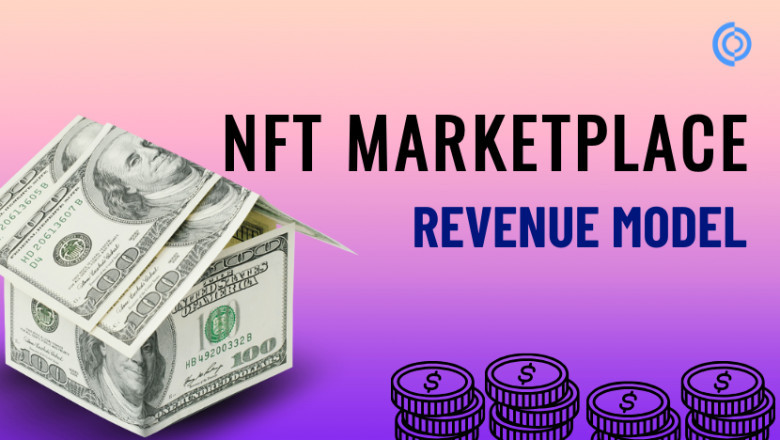views
NFTs are no longer just a trend; they have become a mainstream digital asset class. The rise of blockchain technology and decentralized finance (DeFi) has fueled the demand for NFT Marketplaces where users can buy, sell, and trade unique digital items. Here’s why launching an NFT Marketplace is a smart move for startups:
-
High Revenue Potential: NFT Marketplaces generate revenue through transaction fees, listing fees, and premium memberships, making them highly profitable in the long run.
-
Expanding Market Size: With industries such as art, gaming, music, and real estate embracing NFTs, the market is growing exponentially, offering endless opportunities.
-
Decentralization & Security: Blockchain-based marketplaces provide secure transactions, ownership verification, and immutability, reducing fraud and increasing trust.
-
Brand Differentiation: Customizing your marketplace with niche-specific features can help you stand out in the competitive NFT space.
Steps to Build a Profitable NFT Marketplace
For startups, creating a successful NFT Marketplace requires strategic planning, cutting-edge technology, and a user-centric approach. Here’s a step-by-step guide:
Identify Your Niche and Business Model
Before diving into development, define your target audience and niche. Will your marketplace cater to digital artists, musicians, gamers, or sports collectibles? Some popular business models include:
-
General NFT Marketplace: Open to all digital assets (e.g., OpenSea, Rarible)
-
Art-Focused Marketplace: Specializing in digital art and collectibles (e.g., SuperRare, Foundation)
-
Gaming NFT Marketplace: Offering in-game assets and characters (e.g., Axie Infinity, Enjin)
-
Music & Entertainment Marketplace: Focused on musicians, videos, and event tickets (e.g., Audius, YellowHeart)
Selecting a niche helps in targeted marketing and better user engagement, enhancing the profitability of your platform.
Choose the Right Blockchain and Smart Contracts
The backbone of any NFT Marketplace is blockchain technology. Some popular choices include:
-
Ethereum: The most widely used blockchain for NFTs, offering robust smart contract functionality.
-
Binance Smart Chain (BSC): A cost-effective alternative with lower transaction fees.
-
Solana: Known for high-speed transactions and scalability.
-
Polygon: A layer-2 solution that reduces gas fees on Ethereum.
Smart contracts automate transactions, ensuring security, transparency, and efficiency. A well-coded smart contract prevents issues like duplication and fraud.
Build a User-Friendly Platform
A seamless user experience (UX) is crucial for attracting and retaining users. Features your NFT Marketplace should include:
-
Intuitive UI/UX: A simple, engaging interface for both buyers and sellers.
-
Wallet Integration: Support for multiple crypto wallets like MetaMask, Trust Wallet, and Coinbase Wallet.
-
Search & Filter Options: Allow users to easily navigate through categories and find NFTs of interest.
-
Auction & Bidding System: Enables price negotiations and competitive pricing.
-
Multi-Chain Support: Expanding compatibility with multiple blockchains increases accessibility.
Ensure Security and Legal Compliance
Security is paramount in any digital platform, especially one dealing with high-value assets like NFTs. Implement:
-
Two-Factor Authentication (2FA): Prevents unauthorized access.
-
Escrow Services: Ensures secure transactions between buyers and sellers.
-
Regular Audits: Conduct security audits to identify vulnerabilities in smart contracts.
Additionally, adhere to regional and international NFT regulations to avoid legal complications in the future.
Monetization Strategies
To ensure long-term profitability, your NFT Marketplace should have a solid monetization plan:
-
Transaction Fees: Charge a small commission on each sale.
-
Listing Fees: Allow creators to pay for premium visibility.
-
Membership Plans: Offer exclusive benefits for VIP users.
-
Advertising & Sponsorships: Generate revenue from sponsored content and featured NFTs.
Finding the Right NFT Marketplace Development Team
The success of your NFT Marketplace depends on the expertise of your NFT Marketplace development team. Choosing the right developers ensures a secure, scalable, and innovative platform. Here’s what to look for in a development team:
-
Blockchain Expertise: Developers should have experience with Ethereum, Binance Smart Chain, Solana, and other blockchain networks.
-
Smart Contract Development: A team skilled in Solidity (Ethereum), Rust (Solana), and other blockchain programming languages is essential.
-
Security & Compliance: Ensure they follow best practices in security audits, KYC/AML compliance, and secure coding standards.
-
UI/UX Design Capability: A visually appealing, easy-to-use interface can set your marketplace apart.
-
Post-Launch Support & Maintenance: Ongoing updates, bug fixes, and feature enhancements keep your marketplace competitive.






















Comments
0 comment